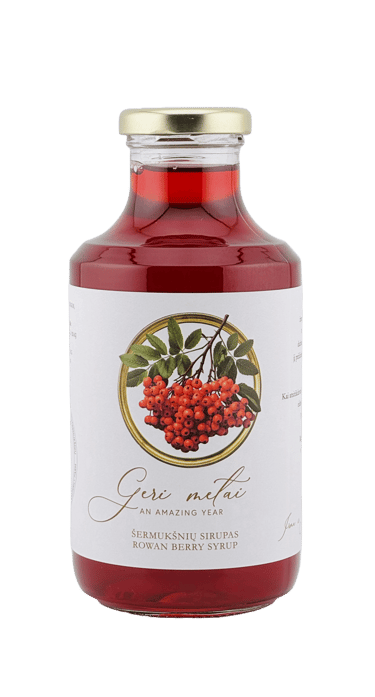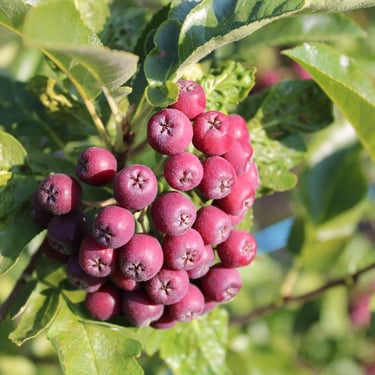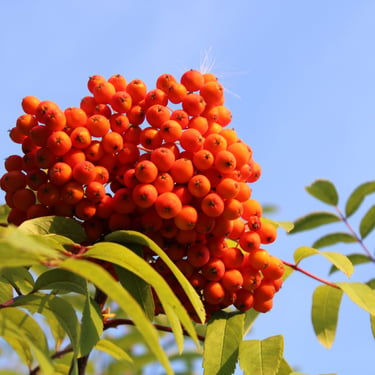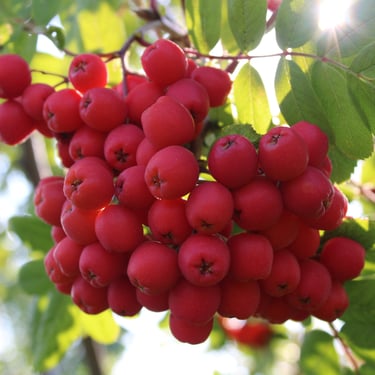Juices and Syrups
Natural juices & syrups. Mix up refreshing homemade lemonade in summer, and in the colder months warm the family with fragrant, vitamin-rich tea.
Guelder Rose Juice
Viburnum (guelder-rose) berries are small, red berries that grow in clusters and are called a remedy for a hundred ailments. In folk medicine, viburnum holds a special place, as these tiny berries are packed with beneficial properties.
The secret of viburnum berries lies in their chemical makeup. Their standout value is a wealth of vitamin C. But these little berries also contain other vitamins - A, E, P, and K, are rich in microelements and minerals, and are an excellent source of potassium. Among the beneficial compounds in these red berries are organic acids, carotenoids, pectin, tannins, and glycosides. According to folk healers, viburnum berries have a toning effect on the body, help normalize metabolism, and have a calming effect (the soothing quality is attributed to the isovaleric and valeric acids in the berries). They are considered suitable when you have a cold, throat ailments, or a cough, with high blood pressure, and it is also said that viburnum juice can effectively relieve headaches; drinking it is said to strengthen the heart, the central nervous system, and liver function, while gastritis is advised to be treated with viburnum juice mixed with honey. Folk medicine also offers beauty tips - massaging the face daily with ice cubes made from the frozen juice will smooth wrinkles and leave the skin softer and clearer.
The health effects above reflect folk/traditional use and are not medical advice. Consume up to a few tablespoons per day.
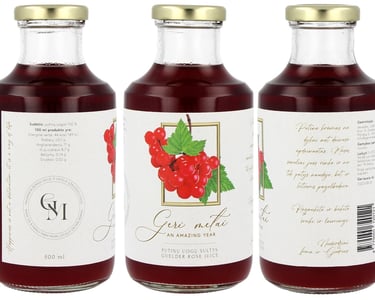

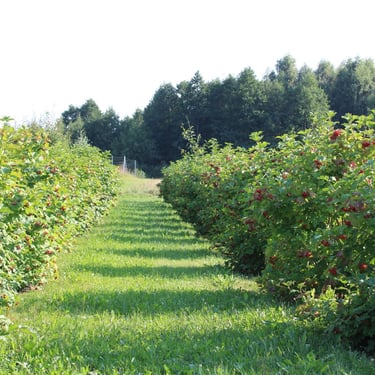
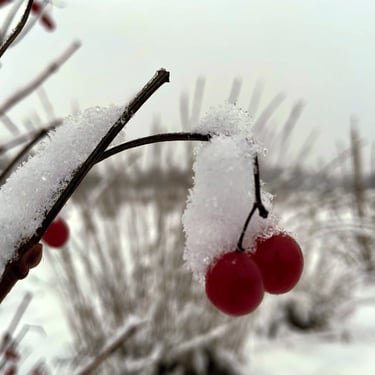
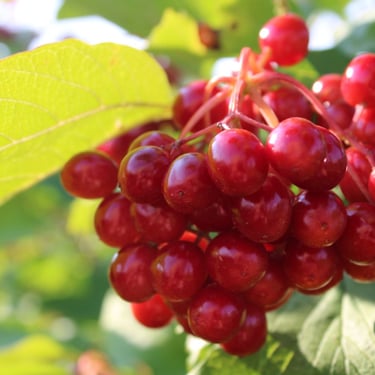
Elderflower Syrup
Elderflower syrup - a fragrant sip of summer in your cup!
When elderberries (elder trees) bloom in the GERI METAI garden, we couldn’t resist making a natural elderflower syrup. Wonderfully floral on the nose, with a nectar-like taste and a gentle tartness (from added lemon juice).
Our elderflower syrup is made by picking the blossoms in the morning - when the nectar is most aromatic - and carefully trimming off all the stems so only the tiny florets remain. We add only sugar and organic lemons, so the syrup is completely natural and smells like… a true summer!
In summer we sip aromatic homemade lemonade by diluting the syrup with water at a 1:10 ratio. Prefer bubbles? Use sparkling water for a livelier feel. If you like it sweeter or more intense, add less water. One bottle of syrup makes 4–5 liters of refreshing, summery drink! In winter we enjoy summer’s fragrant aromas as elderflower tea: 20 ml of syrup with 200–220 ml hot water (about 50–70°C). You can also pour elderflower syrup over curd cheese or pancakes.
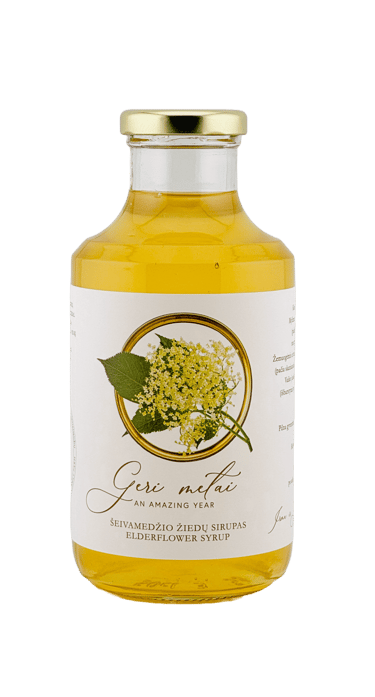

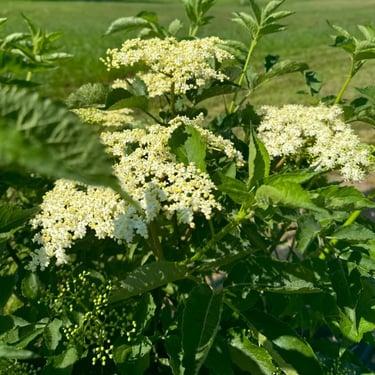
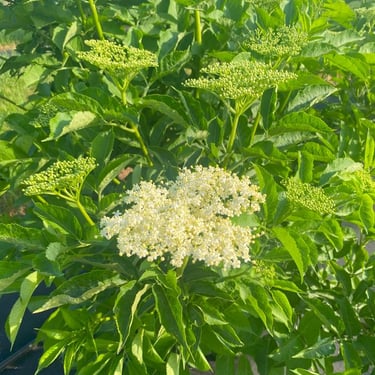
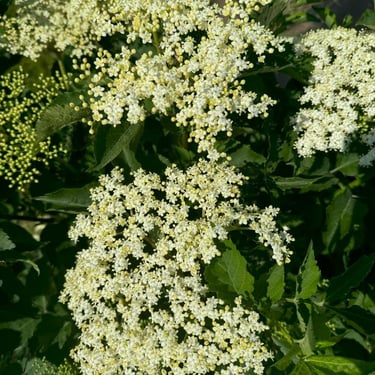
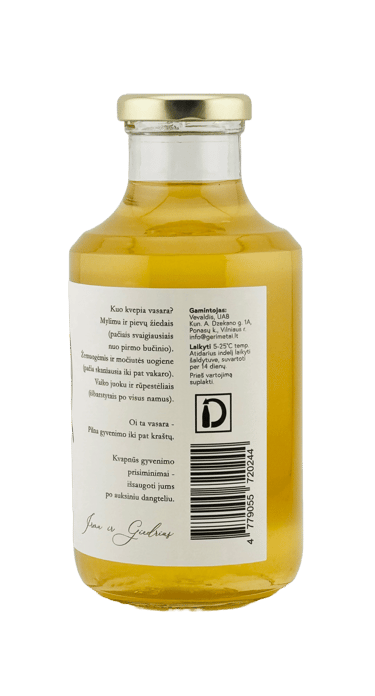

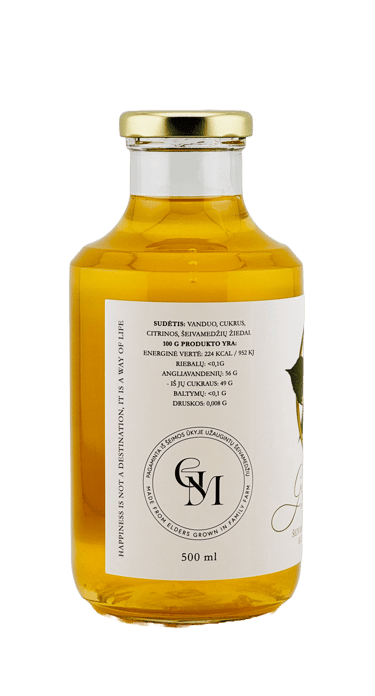

Elderberry Syrup
Knowing the beneficial qualities of these dark berries, we made a natural elderberry syrup. Black elder (Sambucus nigra) is widely known in folk medicine - Hippocrates even called it a “medicine chest.” You can read more about its benefits by browsing online.
It’s important to know that only thermally processed black elderberries are safe to consume, which is why syrup is a great option - it’s made by heating the berries and adding sugar and citric acid. Fresh elderberries are not recommended for anyone (apart from perhaps a berry or two), and elder products are not recommended for pregnant or breastfeeding women, for those with autoimmune conditions, or for anyone intolerant to elder’s active compounds. For everyone else: enjoy in moderation.
We like drinking warming elderberry tea: 30 ml syrup + 200–250 ml hot water (~50–70°C). A 500 ml bottle yields up to 16 cups.
Elder isn’t only valued for healthful qualities. In many cultures it’s honored as a plant of protection and abundance. Lithuanians believed "kaukai" - mythical household spirits - lived beneath elder trees, bringing prosperity and blessing. The Celts linked elder to fairies; the English believed it protected homes from evil spirits. Perhaps it’s no accident that the most powerful wand in the world - the one that helped Harry Potter defeat dark forces - was made of elder.
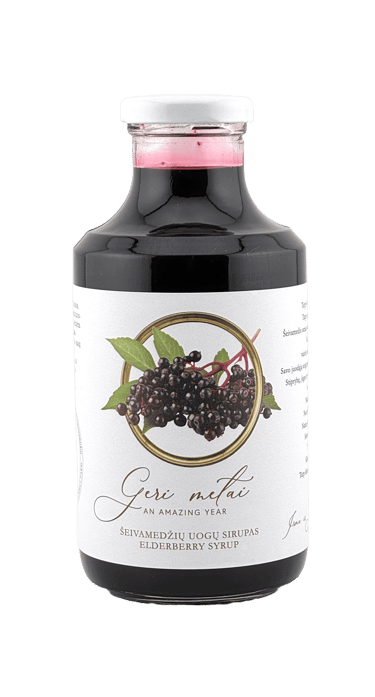

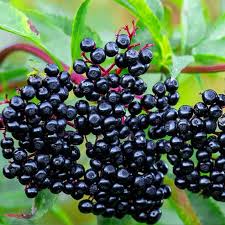
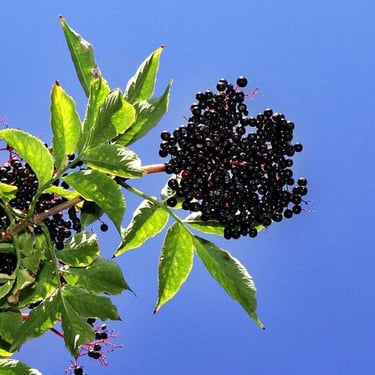
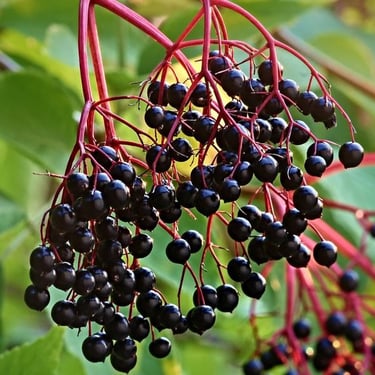
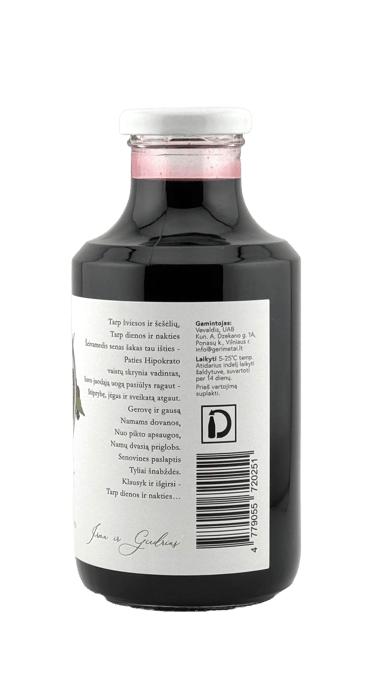

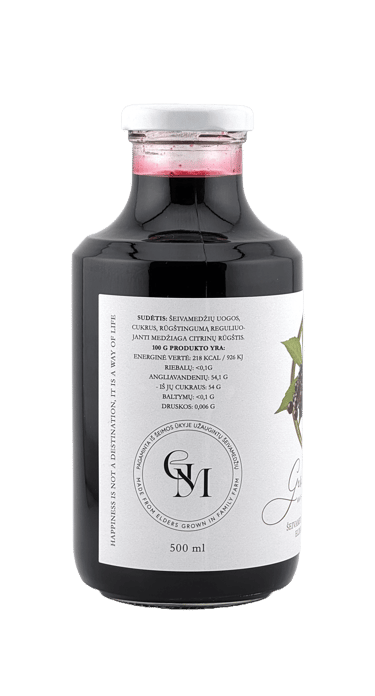

Rowan Berry Syrup
Rowans from our GERŲ METŲ garden aren’t just for wine - they make a lovely winter tea as well. We craft a natural rowan syrup: fresh-pressed juice, a touch of sugar, gently warmed for shelf life - nothing more.
Rowan is rich in biologically active substances essential for normal vital functions and longevity: vitamins, mineral (ash) elements, antibiotic-like substances, radioprotective compounds, glycosides, alkaloids, and more. When other fruit stores run low, using rowan is considered an important preventive measure against various ailments. This is due to the abundance of biologically active compounds - vitamins and hormones - and their favorable proportions for the body. Every little rowan “apple” is a natural reservoir of the polyvitamins people need. Rowan contains these water-soluble vitamins: riboflavin (B2), folic acid (Bc), ascorbic acid (C), bioflavonoids (P); and these fat-soluble vitamins: retinol (vitamin A provitamin), tocopherol (vitamin E), phylloquinone (vitamin K). Rowan is far more valuable than lemons, as its fruit contains three times more of this vitamin. In long-stored or dried rowan and in preserved products, the amount of this vitamin decreases somewhat, but remains sufficient even in mid-winter and early spring. Since the body does not synthesize ascorbic acid, it must be obtained from food.
How we drink it:
40 ml syrup + 200–220 ml hot water (~50–70°C) for a cozy cup.
Also delicious over curd, pancakes, or ice cream.
Note: the benefits mentioned reflect traditional/folk use and are not medical advice.
